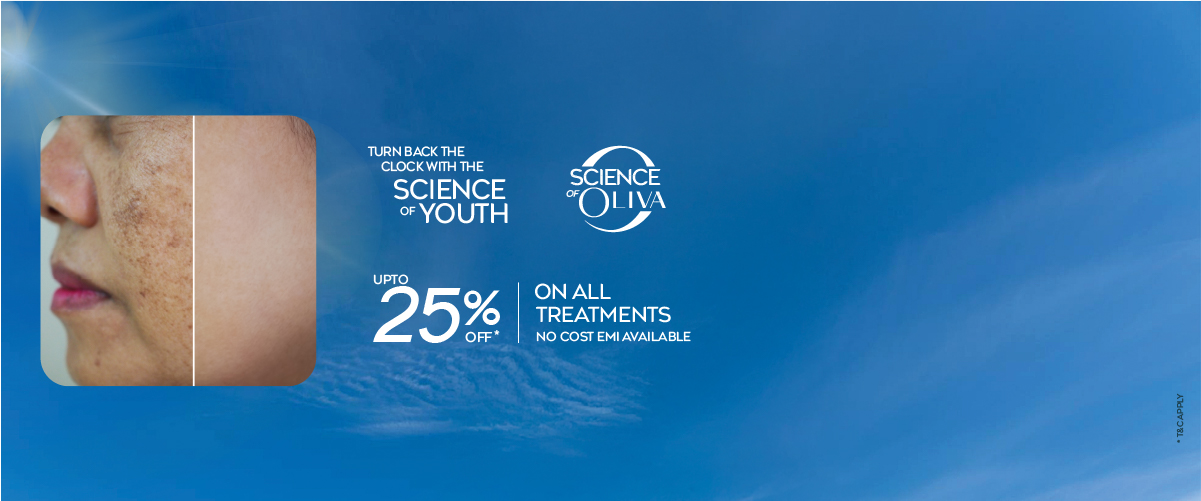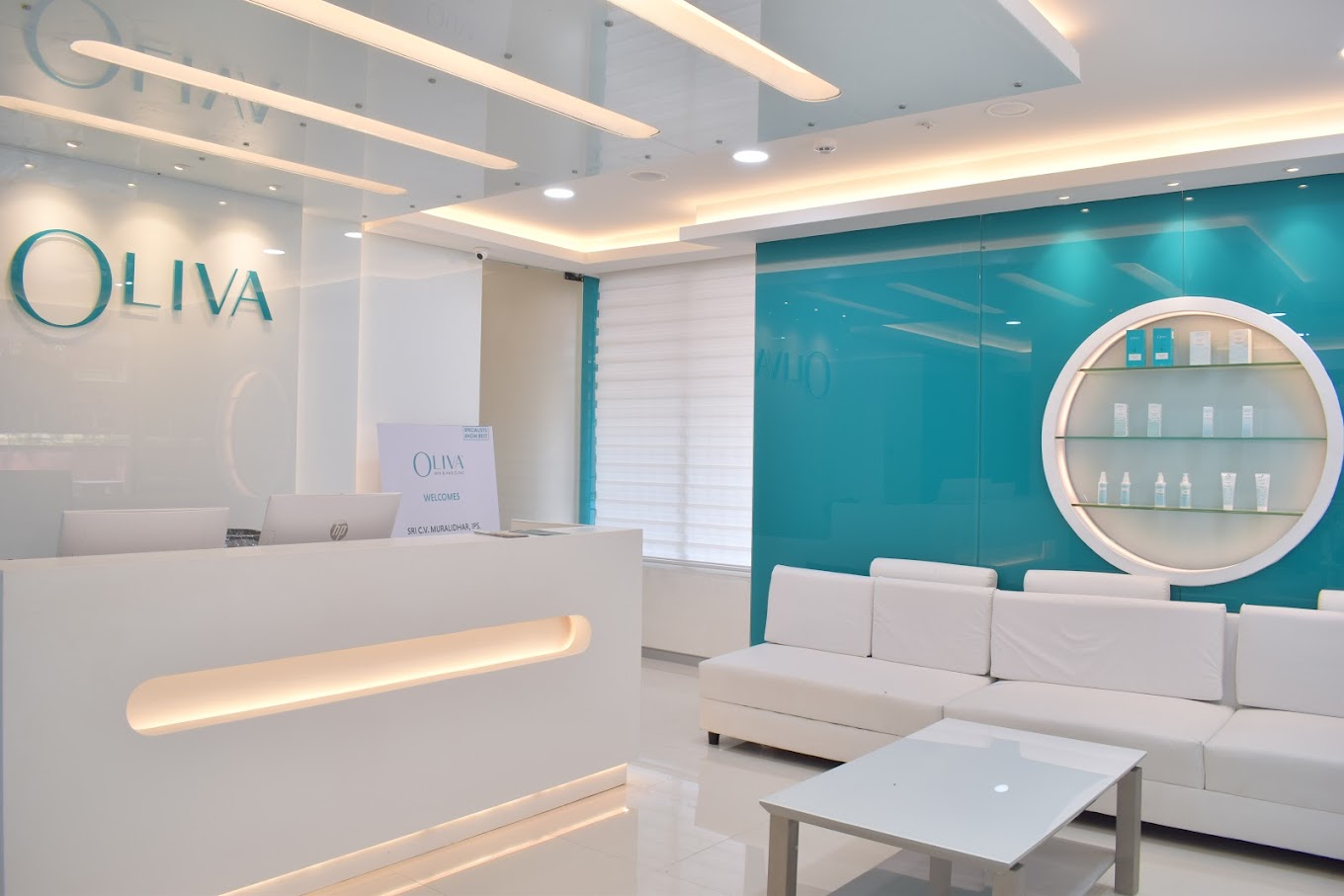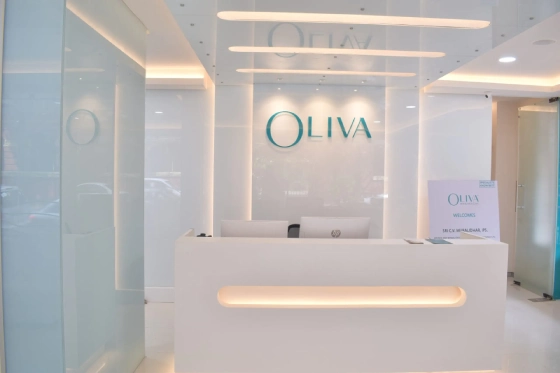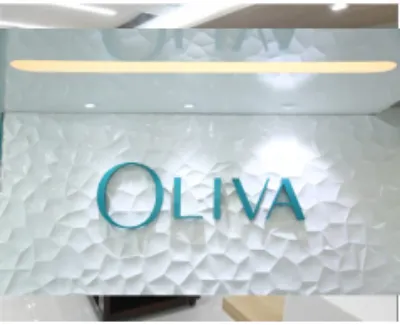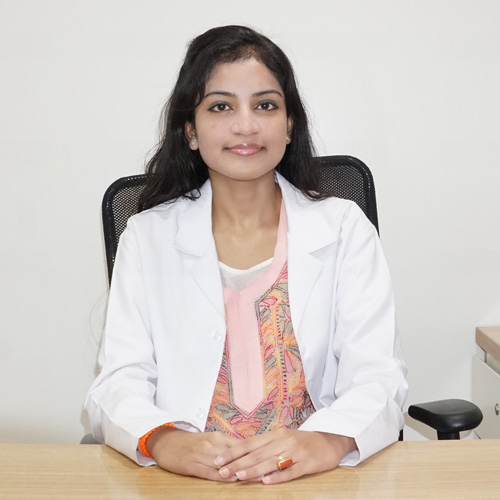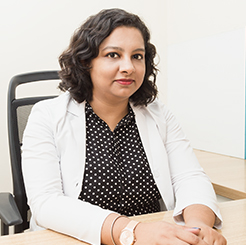Why Choose Oliva Clinic in Kolkata For Melasma Treatment?
Oliva Skin, Hair & Body Clinic offers safe and effective treatment options. Here are the top reasons why you should choose Oliva Clinic in Kolkata:
Over 115 experienced MD-certified dermatologists.
A 5-step consultation to understand your skin, hair & body.
US-FDA approved equipment ensuring safety and effectiveness.
Achieve significant improvement in a few sessions.
No hidden costs. We ensure full transparency at every step.
Served 87,500+ happy clients with a 95% satisfaction rate.
What Is Melasma?
Melasma is a type of hyperpigmentation that affects the skin when estrogen and progesterone hormones trigger the melanocytes, increasing melanin production. Excessive and prolonged sun exposure further aggravates this.
It is also known as chloasma or the mask of pregnancy and primarily affects women in their reproductive years(20-40 years of age), mainly those using oral contraceptives or other hormonal medications. Men also get affected, while studies show that women are nine times more prone to melasma.
What Are The Causes Of Melasma?
The two main reasons for melasma are continuous exposure to harmful UV rays and hormonal imbalances. The following are additional factors that can worsen it:
How To Prevent Melasma?
Here are some expert suggestions on how to prevent melasma:
Where Does Melasma Most Commonly Occur?
People with melasma will notice brownish or bluish patches in the following areas:
- Upper arms
- Shoulders
- On either side of the nose
- Upper lip area
- Forehead
- Cheeks
- Jawline
- Neck area
What Are the Types Of Melasma?
Here are the three types of melasma based on the layer of the skin that is affected:
Signs And Symptoms Of Melasma
You may notice the following signs on your face:
- Brown or blue patches
- Inflamed or reddened spots
- Tiny spots that resemble freckles
- Skin discolouration with defined or undefined borders
- Symmetrical patches on the chin, cheeks and forehead
How Is Melasma Diagnosed?
Dermatologists do either one or both of the following to diagnose melasma:
What Is The Treatment For Melasma At Kolkata?
Melasma can be challenging to treat and often requires a combination of treatments. Top dermatologists at Oliva’s Kolkata clinics conduct a one-on-one consultation to understand the cause, type, location and severity of melasma. Based on this, they will recommend one or more of the following treatments:
Check Your Nearest Oliva Clinic
Best Dermatologists For Melasma Treatment In Kolkata
Frequently Asked Questions On Melasma Treatment
The average cost of melasma treatment in Kolkata varies from person to person. While the price of chemical treatment starts at INR 4,150, the cost of a single session of laser toning starts at approximately INR 9,400.
* PLEASE NOTE:
that this price range only indicates the latest market trend and may change. It strictly does not apply to melasma treatment at Oliva, as we excel in offering customised services. The cost of melasma treatment at Oliva varies for every individual. It depends on factors like the type, target area, cause and severity of the condition and the suitable modalities our dermatologist recommends as solo or combo procedures, the number of sessions and the size of the affected area.
Click here to know the exact cost of your Melasma Treatment.
Adult women with dark skin, pregnant women and those with a positive family history of the condition are especially prone to melasma. Prolonged sun exposure and hormonal pills can worsen it further.
No, melasma is not cancerous. However, seeing a dermatologist and diagnosing melasma accurately is critical.
Though melasma caused due to pregnancy might fade away, it is largely a chronic condition that lasts for at least 3-4 months. When you opt for treatment, the results depend on the plan, which should be suitable and based on the cause, type, and depth of your melasma.
No, melasma is not painful.
There is no scientific research proving that certain foods can cause melasma. However, your dermatologist may prescribe a vitamin D-rich diet to improve skin health.
Melasma develops over a period of time, aggravating as time passes and worsening if left untreated.
In the initial stages, melasma may appear as tiny spots resembling freckles. However, freckles and melasma are two different hyperpigmentation conditions and require unique treatment approaches.


